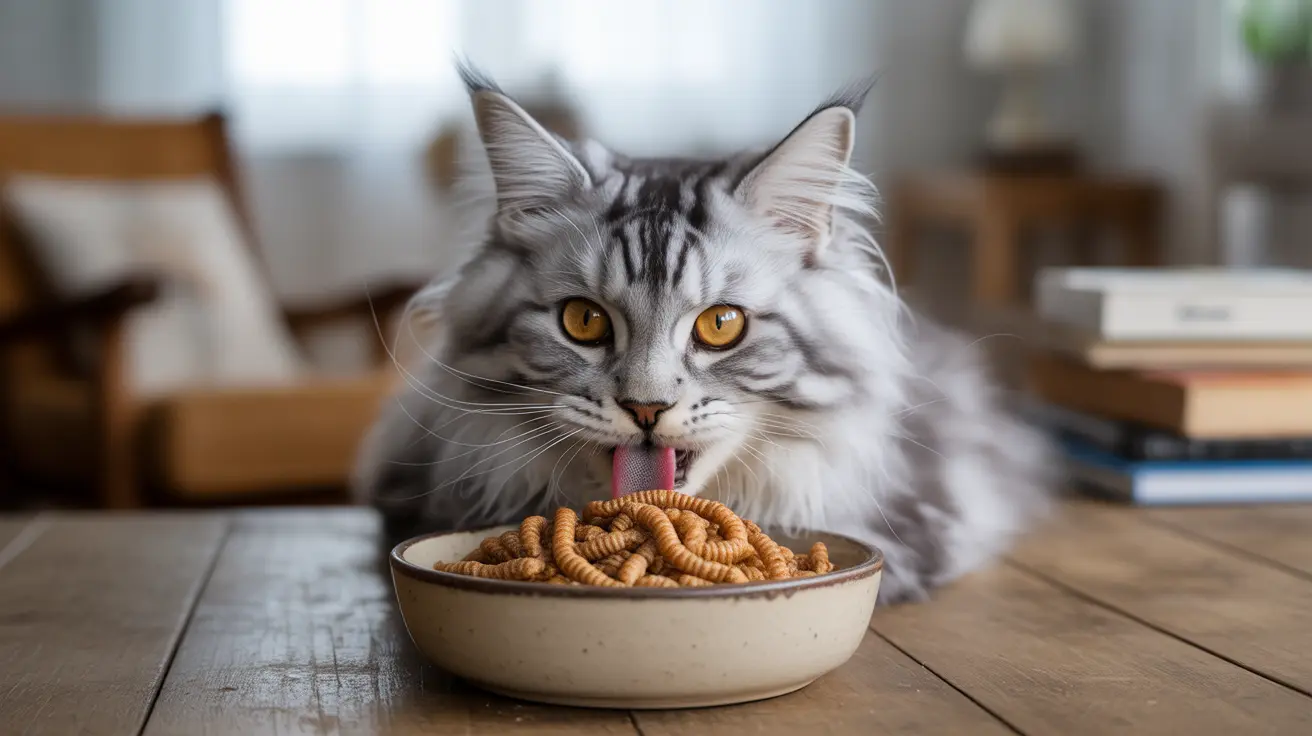As pet owners explore sustainable and nutritious food options for their feline friends, mealworms have emerged as an intriguing protein source. But before you introduce these insects into your cat's diet, it's essential to understand the benefits, risks, and proper ways to serve them.
In this comprehensive guide, we'll explore everything you need to know about feeding mealworms to cats, from their nutritional value to safety considerations and recommended serving methods.
The Nutritional Value of Mealworms for Cats
Mealworms pack an impressive nutritional punch, containing 45-55% protein and 25-30% healthy fats. This high protein content makes them particularly valuable for cats, who are obligate carnivores requiring protein-rich diets.
These insects also provide essential amino acids with over 90% digestibility, making them an efficient protein source comparable to traditional meat proteins. Additionally, they contain various vitamins and minerals, though not in quantities sufficient to serve as a complete diet.
Safe Preparation and Serving Methods
When it comes to feeding mealworms to cats, preparation matters significantly. Only commercially produced, freeze-dried, or cooked mealworms should be offered to your feline companion.
Never feed your cat wild-caught or live mealworms, as these can harbor dangerous parasites and pathogens. Stick to reputable pet food suppliers who specialize in insect-based products.
Portion Control and Frequency
Mealworms should be treated as occasional treats rather than a dietary staple. Despite their nutritional benefits, overconsumption can lead to weight gain due to their high fat content.
A good rule of thumb is to limit mealworms to no more than 10% of your cat's daily caloric intake. They can be offered as standalone treats or mixed with regular cat food for added variety.
Health Benefits and Considerations
Beyond their protein content, mealworms offer several health advantages. They're considered hypoallergenic compared to common protein sources, making them a potential option for cats with food sensitivities.
Research shows that mealworm consumption can promote beneficial gut bacteria through the production of short-chain fatty acids, supporting digestive health. However, they should always complement, not replace, a balanced cat food diet.
Environmental Impact
Choosing mealworms as a protein source can contribute to environmental sustainability. Their production requires significantly less water, land, and feed compared to traditional livestock, resulting in a smaller carbon footprint.
Frequently Asked Questions
Can cats safely eat mealworms, and are there any risks involved?
Yes, cats can safely eat commercially produced, freeze-dried, or cooked mealworms. The main risks come from feeding wild-caught or live mealworms, which may contain parasites or harmful bacteria. Always source mealworms from reputable pet food suppliers.
How nutritious are mealworms for cats compared to traditional protein sources?
Mealworms are highly nutritious, containing 45-55% protein and 25-30% healthy fats. Their amino acid digestibility exceeds 90%, making them comparable to traditional protein sources like chicken or fish in terms of nutritional value.
Should I feed my cat freeze-dried mealworms or live ones, and why?
Always choose freeze-dried mealworms over live ones. Freeze-dried mealworms are safer as the process eliminates potential parasites and bacteria while maintaining nutritional value. Live mealworms can pose health risks due to possible contamination.
How often can I give mealworms to my cat without causing health issues?
Mealworms should be given as occasional treats, not exceeding 10% of your cat's daily caloric intake. Offering them 2-3 times per week is generally safe, but monitor your cat for any digestive changes or weight gain.
Are mealworms a good alternative protein for cats with food allergies?
Yes, mealworms can be an excellent alternative protein source for cats with food allergies. They're considered hypoallergenic compared to common proteins like chicken or beef, making them suitable for cats with food sensitivities.
Conclusion
When properly sourced and served, mealworms can be a safe, nutritious, and environmentally friendly treat for cats. Remember to introduce them gradually, maintain appropriate portion sizes, and always use commercially prepared products. While they shouldn't replace your cat's regular diet, they can be a valuable supplement to their nutrition plan.






